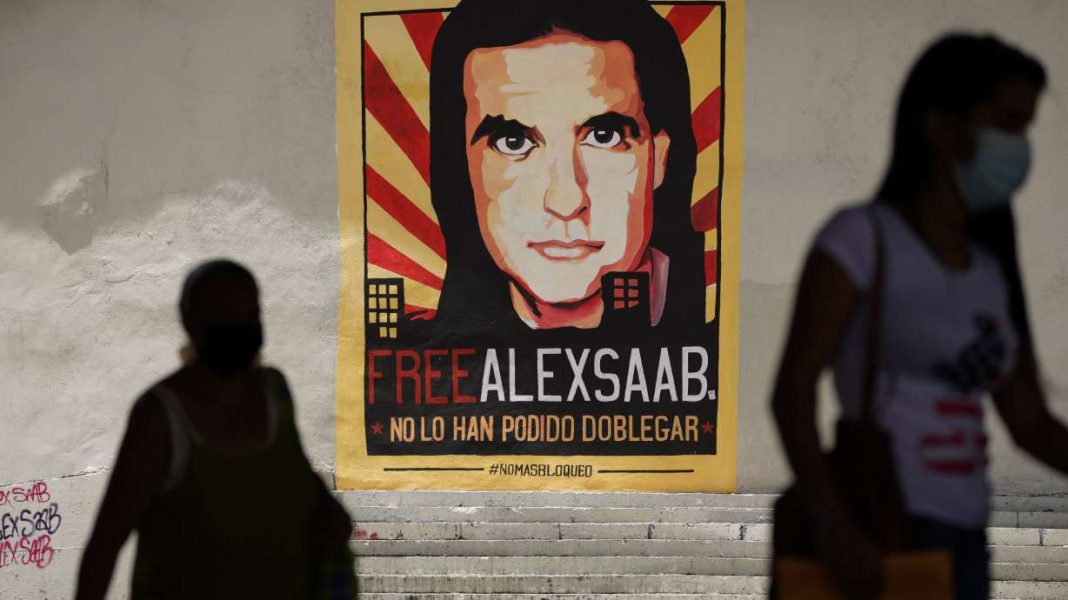MIAMI — The Biden administration has made a significant move in the ongoing diplomatic relations with Venezuela. The release of Alex Saab, a close ally of Venezuelan President Nicolás Maduro, in exchange for jailed Americans, marks a potential turning point in the strained relationship between the two countries.
Alex Saab, who was arrested on a U.S. warrant for money laundering in 2020, was released from custody Wednesday. In exchange, Maduro will free some, if not all, of the roughly dozen U.S. citizens who remain imprisoned in Venezuela, according to a person familiar with the situation who was not authorized to discuss the matter publicly and spoke on condition of anonymity.
The White House declined to comment on the specifics of the exchange, but the release of Saab is seen as a significant concession to Maduro’s government.
Behind-the-Scenes Deal
On Friday and again on Monday, two docket entries were filed under seal in the long-dormant criminal case out of federal court in Miami, an indication that a behind-the-scenes deal was in the works.
The deal between Washington and Caracas represents the U.S. government’s latest bid to improve relations and bring back imprisoned Americans. The move, likely to be the largest release of American prisoners since an October 2022 deal that freed seven, comes just weeks after the U.S. agreed to temporarily suspend some sanctions after Maduro’s socialist government and a faction of its opposition formally resolved to work together on a series of basic conditions for the next presidential election
Implications and Reactions
The U.S. has long accused Saab of being a bagman for Maduro. Saab’s release would be seen as a major concession to Maduro, the South American country’s authoritarian leader who is himself the target of a $15 million U.S. reward for anyone bringing him to New York to face drug trafficking charges.
The deal is also likely to anger the Venezuelan opposition, who have of late criticized the White House for standing by as the leader of the OPEC nation has repeatedly outmaneuvered the U.S. government after the Trump administration’s maximum pressure campaign failed to topple him.
Challenges and Future Prospects
In October, the White House eased sanctions on Venezuela’s oil industry, promising to reimpose the restrictions if Maduro by Nov. 30 didn’t live up to his promise to pave the way for free and fair elections next year. That deadline passed and so far Maduro has failed to reverse a ban blocking his chief opponent, María Corina Machado, from running for office.
The release of Saab and the potential freedom of the jailed Americans signal a potential shift in the U.S.-Venezuela relations, but the road ahead remains uncertain as both countries navigate through diplomatic challenges and domestic pressures.
Previous Swaps and Legal Battles
The U.S. has conducted several swaps with Venezuela over the past few years. The most notable was a deal in October 2022 for seven Americans, including five oil executives at Houston-based Citgo, in exchange for the release of two nephews of Maduro’s wife jailed in the U.S. on narcotics charges.
Saab, 51, was pulled off a private jet during a fuel stop in Cape Verde en route to Iran, where he was sent to negotiate oil deals on behalf of Maduro’s government. The charges: conspiracy to commit money laundering tied to a bribery scheme that allegedly siphoned off $350 million through state contracts to build affordable housing for Venezuela’s government.
Maduro’s government has insisted Saab was traveling to Iran to buy food and medical supplies when he was detained in Cape Verde. Saab was previously sanctioned by the U.S. Treasury Department for allegedly running a scheme that included Maduro’s inner circle and stole hundreds of millions in dollars from food-import contracts at a time of widespread hunger mainly due to shortages in the South American country.
The release of Saab and the potential freedom of the jailed Americans signal a potential shift in the U.S.-Venezuela relations, but the road ahead remains uncertain as both countries navigate through diplomatic challenges and domestic pressures.




Nonsensical prisoner swaps undermine justice systems and perpetuate political alliances.
Disagree. Prisoner swaps serve as diplomatic tools to address complex international conflicts, prioritizing the well-being and safety of individuals involved. However, the long-term effects on justice systems and political alliances should be carefully evaluated.
Disagree. While prisoner swaps can be seen as a means to resolve conflicts, the release of an ally of Venezuela’s president in exchange for jailed Americans sets a concerning precedent. It seems to prioritize political alliances over justice and fairness.